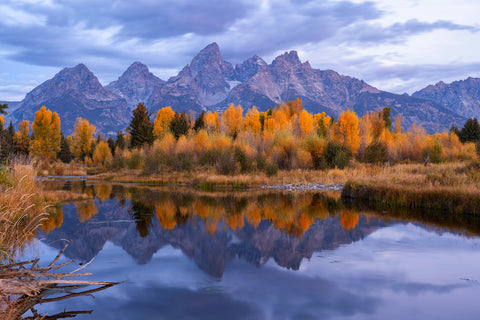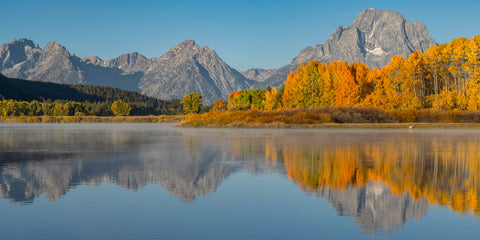He put up with no foolishness and made that plain from the start. The work was hard, though there was never any acknowledgement of that. To admit it, to as much as tip your hat to the strenuous nature of a day in the field, was the first baby step toward giving up, and that, like allowing the red paint on the barn roof to go more than three years without a fresh coat, was unconscionable.
Most of us boys in town worked for him, "bucking" bales during the summer. He'd hire us for a fair wage for the times, never subscribing to any notion that the bigger or stronger of us were more fit for the work, simply expecting us to do the job without complaint.
His wife pulled the baler, as soon as the night's dew had evaporated from the swaths of timothy knocked down the day before, and he drove the tractor and wagon while we muscled the bales in and stacked them. We'd start in the back of the wagon, building steps out of bales to line it all the way to its weathered top boards, working our way forward until, for the final tier, it took two and sometimes three of us to lever them into place. He worked us like men, talked to us like men, and if he ever paused to think about whether the work environment was appropriate for the rag-tag group of twelve and thirteen-year-olds who showed up on his farm each morning at 6am, gallon milk jugs equal parts water and ice slung through the handlebars of their ten-speeds, we rarely saw it. In fact, the only recognition he made of our age was tossing one of us a pair of thin, leather gloves if we'd forgotten our own, something we noticed he wouldn't do for the occasional man who came to work for him.
We'd fill the wagon, then enjoy a brief respite sitting atop the bales as it swayed to the barn, where the real work of getting the hay into the loft began. The oldest of us, the veteran of maybe three or four haying seasons, would unload the bales onto a chain-driven conveyor which inched them up toward the second-story hayloft where the rest of us waited in sweltering silence for them to begin thudding onto the hemlock floor, polished to a dull shine from seventy-years-worth of chaff. Inside the loft, we'd bucket brigade the bales to the farthest recesses of the barn, jamming them tight on top of each other, stacking all the way to the tin roof, leaving small openings around the cobweb-cloaked windows and fans with rusted blades which none of us could remember ever turning. When at last the bales stopping dropping into the loft, we'd climb down a rough-lumber ladder past empty Holstein stanchions and stagger out into the sun where, no matter the temperature, it was always cooler than inside the barn. In the empty wagon riding back to the hay field, we'd chug our water, compare our chaff-chapped forearms, and blow hay dust out of our noses. And then we'd do it again, sometimes six times in a day.
It wasn't just a way of life, it was life. All over Northern Vermont, single-family dairy farms ran much the same way, summer haying bracketed by twice-daily milking. It had been like this from the time our 14th state's first pioneers envisioned sheep and cows grazing where only pine and birch grew. As the forests fell and scrub brush was beaten back by saws and scythes, while horse and ox-drawn stone boats cleared remnants of the last glacier - a nearly-insurmountable number of granite boulders - and families hewed out an existence around what became New England's villages, the country I grew up in found its character, an identity it would hold for 200 years.
Tiny hill farms, where independence and ingenuity ran stronger even than Vermont's interminable winter, dotted a landscape which pit the mower in constant struggle against the forest. Between the farmer and the grey birch and meadow sweet was a tenuous truce - a mutual understanding that with the sacrifice of thousands of hours of manual labor came the spoils of a piece of ground more clover than hedgerow. A single season's lapse in work meant a gain of many yards by the ever-hungry woods.
By the time I was old enough to amount to any help in the hay fields, most of Northern Vermont's sheep pasture - the steeper ground where hay wouldn't grow and cows didn't venture - was grown over with third-generation forest. The thorny, wild apple gave way to poplar which yielded to sugar maple, yellow birch, and beech. Stone walls settled back into the ground from which they rose, and cellar holes, some with a single, gnarly lilac still guarding a long-gone door, filled fast with leaves and new earth.
It never occurred to me, sitting next to the remains of a mountain homestead one unseasonably warm November afternoon, my left leg in a cast, my cast double-wrapped in garbage bags, a deer rifle in my lap, that Vermont would change again. The sheep were gone, along with the hardy souls who grazed them, buried in family plots where listing, slate stones told a stark tale of hard lives measured between dates often less than fifty years apart. That was it I thought, the last big shift, done many years before I was born. I took the contemporary, family dairy farm as much for granted and as everlasting as the spring rainbow trout runs up our north-flowing rivers.
Beyond the borders of the Northeast Kingdom, that protected land between the northern-most Green Mountains, Quebec, and the Connecticut River, the world could hurtle ahead toward the 21st Century all it wanted. There where I grew up, where Little League rivalries were as fierce as any between the Red Sox and Yankees and there was perennial talk of secession on town meeting day, things would never change because quite frankly I loved them too much.
Well, love and youth are both blind, and nothing is immune to change. By the early 1990s, Vermont's Northeast Kingdom was losing its grip on its identity as surely as its fall, river-valley fog gives way to clear skies on a day of north wind. Heavily-subsidized milk poured across the border from Quebec, freed by NAFTA of any protective tariffs. The dawn of the electronic age was shrinking the world, giving tantalizing glimpses of a life outside Vermont to scores of teenagers who'd seen farming make old men and women of their parents before their time. The birth of a technological revolution drove more and more jobs into the metropolitan sector, leaving rural economies struggling for any foothold.
Some farms sold to the cavernous, corporate ventures needed to compete with Canadian milk. Others found buyers from burgeoning cities on the east coast looking for vacation property. A few hung on, filling niches for organic produce or serving a single customer looking for the particularly rich milk of Guernseys. Many simply allowed the voracious North Country forest its hard-fought victory. Children moved away, parents passed away, and the winter wind stripped paint, then shingles, then siding.

My first love affair had ended in loss too great to witness further. On an early, June morning in 1995, reminiscent of so many perfect summer days for haying, I loaded a beat-up Ford Tempo to the gills and headed for Montana.
I've been here almost 21 years now. I've watched the country around Yellowstone National Park, scorched during the fires of 1988, progress from a charred wasteland to forests of dense, young lodgepole pine. I've seen wolves, introduced from Canada, spread throughout the western half of the state. I've watched large towns become cities and cities bulge two-fold. I've seen small ranches morph into small subdivisions. I've seen barn roofs cave to the west wind, and prairie homestead cabins tilt southward. I've seen what I saw in Vermont - a shift away from family agriculture - and I've felt my heart break again. Like all heartache, it doesn't get any easier.
If someone asked me to sum up the 21st Century in one word, I'd call it hurried. It seems built around the here and now and the ideas of right this second, often at the expense of any consideration of longer-term consequence. Not just in Vermont and Montana, but all across the country there seems a push to urbanize. To sprawl. A couple of years ago, I flew from Miami to Boston on a clear day with views of most of our Eastern Seaboard. When will enough be enough, I wondered? Probably never. The beltway, the strip mall, the big box stores, and myriad cell phone repair centers so none of us will go "unplugged" for more than an extremely inconvenient couple of hours.
When I visited Vermont this past October, I drove the entire perimeter of the Northeast Kingdom, circling what I suspect will always feel more like home to me than anywhere else on Earth. Trending north up the Connecticut River, past now-closed country stores, broken fuel pumps sitting in parking lots more weeds than concrete, completely abandoned farms, and an undeniable advance of Vermont's woodlands, parts of it looked like Chernobyl - the beauty of nature against a backdrop of empty.
Not many more winters I thought, passing a barn that had shifted nearly all the way off its granite foundation, its grassy high-drive no longer in line with its hayloft. One or two wet, February snows... a December nor-Easter... the ground will claim the dead.

Vermont will change again, I know. As Boston reaches Manchester, New Hampshire, Hartford creeps closer to the sea, and New York and Philadelphia join hands, eventually the long winters won't deter growth, even in the Northeast Kingdom. New houses will go up and some people will wonder what once stood in the copse of alder and poplar on their property. What did those rotting timbers shrouded by new growth once support? Who might have carried the milk can pocked by birdshot - a headstone to a time long gone.

There wasn't much evidence left of the mountain farm where I sat as teenager, believing change would never come, when I returned to it one evening shortly before flying back to Montana. A soft maple had taken root in the cellar hole and grown fifty feet tall. The backyard apple trees had crossed a dozen times with their wild brethren, reverting closer with each generation to the thorny shrubs from which they'd been grafted two centuries ago. A horse-drawn hay rake, its seat claimed by someone for a porch chair, was nearly unrecognizable among hobblebush.
I stayed until evening, when the view through colored leaves of Jay Peak dimmed and the woods filled with silence, the still of fall all around me. Perhaps this place will remain untouched I thought as I started up a deep-rutted logging trace toward Route 58 and the top of Irasburg Mountain where I'd parked. But I knew better. I may not live to see it, but the west-facing view I had at sunset will beckon someone. Someday.
I can't really imagine what life in Northern Vermont - or Montana for that matter - will be like then any more than I could have predicted the changes I've seen thirty years ago. I'd lay a lot of money on whoever reclaims that spot not milking any cows though. Not waking in the night to the wail of a volunteer fire department's siren and the awful dread of not knowing whose barn, loaded with hay a little too wet, was burning. Not ever cutting more grass than a front lawn, sprayed heavily with pesticides to keep the black flies at bay in June.
All over America the epitaph to small farms is written in wind-shattered timbers, unruly patches of out-of-place day lilies, topless silos, and overgrown foundations. Sometimes, driving by a homestead in Montana, I'll slow down and take a long look, once in a while a picture. And sometimes in the prairie wind I think I hear the voices of a family at dinner after a day in the field. I can never quite make out the conversation except that it sounds vibrant. Defiant even. United in a dream. I listen harder and hear only the wind.




Anonymous
Your story was amazing I couldn’t stop reading it. So much of what you said I have experienced. I feel fortunate that I grew up when things were simpler and life didn’t expect so much of us.
Thank you Jake for this picture (I love barns)!
Chris
Robin Wicks
Exquisite, poignantly written, insightful, provoking, moving, vividly heartbreaking, yet through it all there is hopefulness that we have the strength to continue on as have others before. Thank you
Ellen Braithwaite
If only . . .
Thanks, Jake.
Sue Tester
Just beautiful! Although it makes me sad, what you wrote, it makes me happy that you so eloquently captured a time & place so deeply, that it could make the reader sigh and wish for more. Your photography and writing are just lovely, thanks.
Marsha Downs
Living in the somewhat rural area of the central NH/VT border, where dairy farms were more popular than the corner store, the last of them in my town of Warren, NH, went the way of the bulldozers just last year. More and more farms in Bradford, VT and surrounding areas are being sold out. Your writing brought tears to my eyes in seeing the truth of it all. I, too, have visited Montant, though not lived there, and was fortunate enough to ride over the prairies of an 8,000 acre farm, with wild horses running up over hills, curious as to who was passing through. It breaks my heart to think of the shifts in this kind of country. Thank you, Jake, for your beautiful and insightful writings and amazing photograhs that capture your words perfectly.